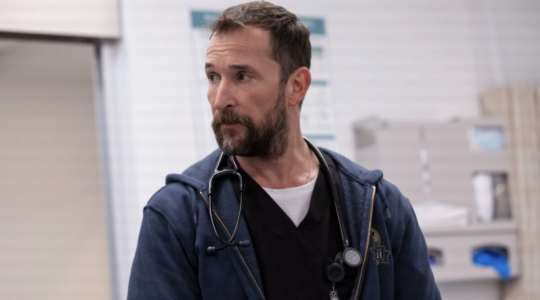The Supreme Court’s decision to overturn the Defense of Marriage Act last week gave rise to a range of Jewish responses to gay marriage. Agudath Israel of America, the haredi Orthodox umbrella group, released a terse message asserting that, “Society’s mores may shift and crumble but eternal verities exist.” From the Reform movement came an embrace of full rights for gay couples. The Orthodox Union noted that secular law needn’t always comport with the group’s religious beliefs, while emphasizing the Jewish view of homosexuality as sinful.
Gay rights has long been an issue on which Jewish groups have staked out positions, generally splitting between Orthodox groups, which have opposed growing recognition of gay rights, and liberal denominations that have supported it.
In 1978, in response to a bill under consideration by the New York City Council, Agudath Israel and the Orthodox Rabbinical Alliance of America said they would use all available pressure tactics to defeat any measure that would compel schools to hire homosexual teachers or require that apartments be rented to avowed homosexual couples.
Rabbi Abraham Hecht, president of the alliance, warned that passage of the bill would give “legal stature to an aberration … You don’t give special rights to drunks or dope addicts and in this case you should not give special minority status to homosexuals.” He also asserted that if “homosexuality is not stopped, the institution of marriage will go out of style” and destroy “the fabric of the traditional family unit.”
In 2000, the Orthodox Union supported the Boy Scouts of America, who claimed that forcing them to hire homosexual was a breach of their first amendment. BSA’s policy prohibiting gay members was reversed in May.
In 1994, some students and faculty at Yeshiva University protested against student groups that support homosexuality. The university, noting its policy of equality, said it had no choice but to allow the groups. In 1998, a lesbian couple claimed they were denied housing as a married couple at the university’s Albert Einstein College of Medicine because of their sexuality. Agudath Israel supported Y.U. in the lawsuit, arguing that forcing an institution to give housing to a same-sex couple would “undermine religious freedom and convey an inappropriate social message.”
The Reform movement has generally supported gay rights in the United States. In 1992, the movement’s Religious Action Center opposed a referendum passed in Colorado which took away certain civil rights from gay partners. In 2000, the movement’s rabbinic association, the Central Conference of American Rabbis, won an interfaith award from the Pride Interfaith Coalition for Greater Boston’s Lesbian, Gay, Bisexual and Transgendered People of Faith for their support of rabbis officiating same-sex unions. In 2004, Rabbi David Saperstein, executive director of the RAC, condemned the use of religion in discriminating against LGBTQ couples.
But the movement’s record has not been unequivocal in supporting gays. In 1998, Reform rabbis in France, Belgium and Switzerland issued a statement expressing their opposition to gay marriage.
JTA has documented Jewish history in real-time for over a century. Keep our journalism strong by joining us in supporting independent, award-winning reporting.





